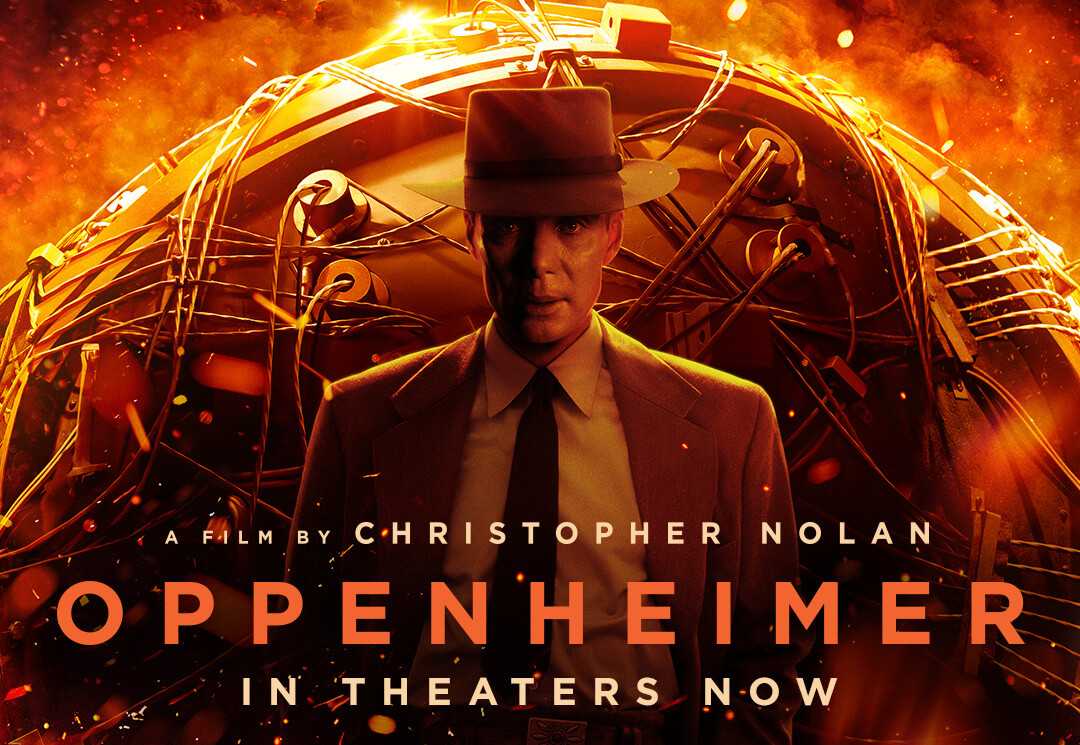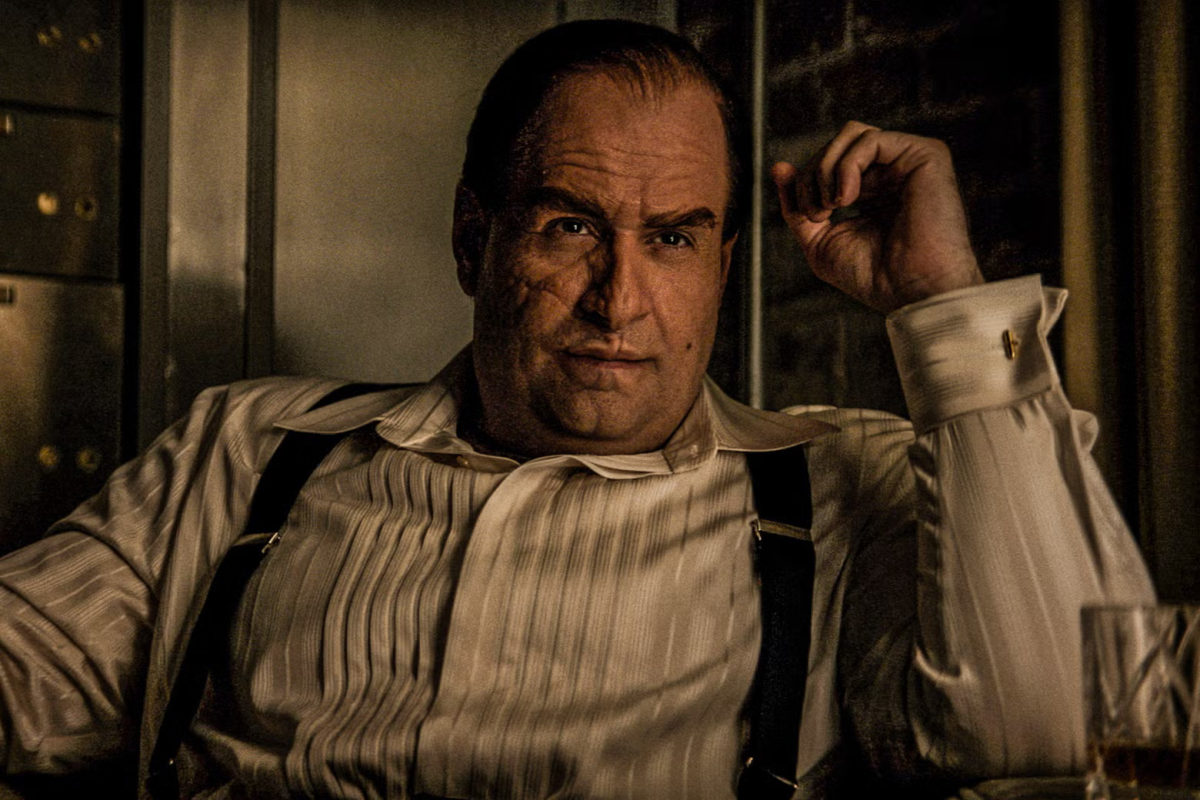In 1945, man detonated the deadliest weapon ever made in the history of the world for the very first time. Bizarrely, nearly all of America cheered with joy and pride. Could there have possibly been a greater story for five-time Academy Award winning filmmaker Christopher Nolan to tackle in his most recent film “Oppenheimer”?
Within one month of its release on July 21, “Oppenheimer” grossed $788 million worldwide, becoming the second most successful R-rated movie of all time and the fourth most successful film of Nolan’s career.
“Oppenheimer” tells the real-world story of J. Robert Oppenheimer, a revolutionary theoretical physicist, the director of the Manhattan Project’s Los Alamos Laboratory, and most importantly, the father of the atomic bomb.
While the 77 years since the use of the atom bomb on Hiroshima and Nagasaki have featured endless political and moral debates about its creation and the way it was used, “Oppenheimer” does not seek to reiterate any of these arguments. Instead, it is, as its name would suggest, a movie entirely about the experiences of the man behind the creation and how his mind paints a shattered reflection of society as a whole.
“[The beginning] really set a solid foundation for the rest of the movie, with the introduction of the black and white scenes,” said Linganore Junior Christina Wallace, an average moviegoer.
It begins with scenes of a young and brilliant Oppenheimer during his studies at the University of Cambridge, avoiding the already erupting political conflicts of the time. The audience learns about his flaws, opinions, and most importantly, his unique overwhelming passion for theoretical physics and the vast unknowns of the universe.
To break up the beginning of the movie, Nolan uses so-called ‘particle scenes’, which are dazzling displays of radiance and exploding light, to perfectly prevent this slow beginning from becoming boring.
The ever-intensifying score alongside the expanding spatial events allow the audience to see that this is not an origin just for the sake of it; rather, it is a horrifying display of the birth of a new scientific era fueled only by one man’s dangerous curiosity: a new big bang with new big consequences.
“They [the particle scenes] were incredibly imaginative and inspiring to someone like me who wants to tell stories like these,” said Franklin High School (FHS) Junior Jackson Hetrick, an aspiring film major.
Although the movie spends a great deal of its first and second acts exploring Oppenheimer’s personal life, lovers and uncertainty in his own political allegiances, it also distances the viewer from these events, just as Oppenheimer is himself. And, as a result of the U.S. government’s demands, much of Oppenheimer’s personal life is made even more irrelevant as he begins his work on the Manhattan Project.
The film makes it clear that in this part of his life, Oppenheimer is simply a physicist; that is his purpose for being alive, and anything beyond that will always fall second in priority, whether he feels guilt for it or not.
“You don’t get to commit sin, and then ask all of us to feel sorry for you when there are consequences,” said Kitty Oppenheimer, his wife in the film.
Around the end of the movie’s second act and, coincidentally, its second hour, is what many believed to be the climax of the film: Trinity, the first successful test of the atomic bomb. Silence and holding your breath are the only things that could accurately describe this scene. Any other attempt would degrade its tense beauty into mere words.
“They [the trinity test scenes] were my favorite part of the movie,” said Wallace. “The anticipation was just built up so perfectly that the rest of the story faded away.”

Just two weeks after the Trinity test, the atomic bomb is used for the first time against Japan, and Oppenheimer’s ignorant perspective, fueled by a physicist’s curiosity, finally fades. In this scene, he enters a claustrophobic room, flooded with the violent stomping of a small excited crowd there to celebrate his work on the atomic bomb after its successful use. Oppenheimer delivers to the crowd with an almost desperate satire. The audience misses this, immediately erupting in applause.
“It’s too soon to tell what the results of this bombing are, but I’ll bet the Japanese didn’t like it,” Oppenheimer said to the crowd.
While society celebrates what it considers to be the definitive end to World War II, Oppenheimer is wears the blood of thousands of people on his hands, their souls weighing on his. As viewers watched this scene, they cannot help but hear Kitty’s words echo again in their heads.
“You don’t get to commit sin, and then ask all of us to feel sorry for you when there are consequences,” Kitty Oppenheimer said.
Oppenheimer consciously chose to develop a product that he knew had the possibility of destroying the entire world, let alone the more tragically probable ~200,000 deaths that did occur. Regardless of his intentions, passions, hero status or otherwise, as an individual, J. Robert Oppenheimer had walked a monstrous path and become one in the process. He knew it even when nobody else, at the time, did.
“Now I am become death, the destroyer of worlds,” said Oppenheimer when quoting the Bhagavad Gita to describe his mentality following the atomic bomb being dropped.
The American public did not feel sorry for him. Instead, they were grateful for his actions because of how they impacted the country and allowed us to definitively win World War II. They do not care about individuals or the victims of the bomb, only their own immediate benefits, and are perfectly content to ignore the rest of the world.
“”Oppenheimer” is written so perfectly as such a relatable person. Everyone has their passions, and so it feels difficult to hate him for following his,” Hetrick said.
On the other hand, Oppenheimer is pointedly unable to stay blissfully ignorant like the general public. He is crushed by the burden of his actions, so much so that his truest self, which the movie represents as his overwhelming passion for physics, is destroyed. Consequently, Oppenheimer steps away from his work as a revolutionary physicist, spending the majority of his remaining time on this earth working to make up for his mistakes in the social and political spheres.
Thankfully, Oppenheimer is finally rewarded for bearing this national burden with an Enrico Fermi award from President John F. Kennedy. With this action, the viewer is shown that the individual burdens of our world cannot be ignored in the face of our world-wide issues, no matter the size.
“From a purely scientific perspective, Oppenheimer deserved to be awarded for his achievements; But, even from a larger moral perspective, I felt happy for him finally getting it,” Wallace said in her closing thoughts about the film.
Christopher Nolan’s “Oppenheimer” is a horrific tale that delves into the psyche of a man whose life is a terrifying anecdote for the general mentality of present day America. However, its success shows that people were receptive to such a terribly familiar message. With Oppenheimer, Nolan plainly states: The universe is as complex as the people within it, and nobody’s character is as simple as the consequences of their actions.














